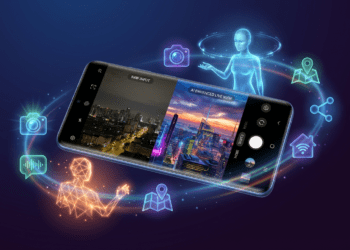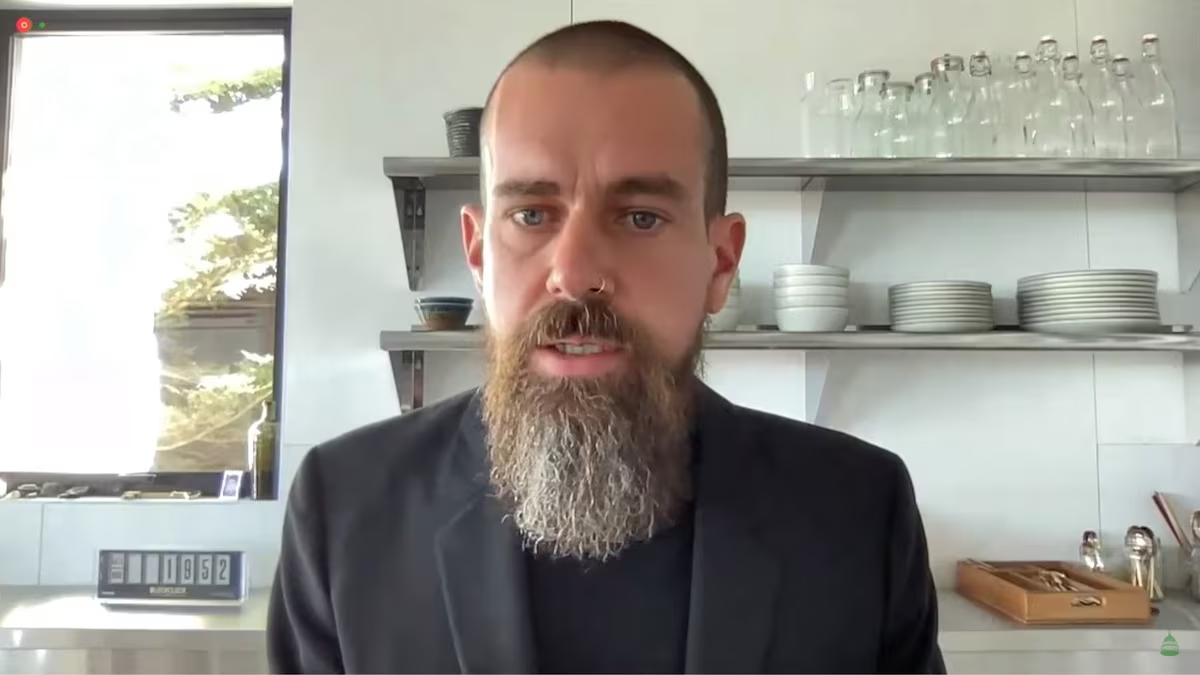
OpenAI just pulled off something remarkable. Their new AI video app, Sora 2, hit one million downloads in less than five days. That’s faster than ChatGPT managed when it first launched. And here’s the kicker Sora is invite-only and currently available in just two countries.
Bill Peebles, head of Sora at OpenAI, announced the milestone on X late Wednesday evening. “Sora hit 1M app downloads in <5 days, even faster than ChatGPT did (despite the invite flow and only targeting North America!)!” he wrote. The team, he added, is “working hard to keep up with surging growth.”
It’s a stunning achievement for an app that launched on September 30, 2025. Within days, it rocketed to the number one spot on Apple’s App Store. The speed of adoption has caught even industry watchers off guard.
The Numbers Tell a Compelling Story
According to data from app intelligence firm Appfigures, Sora racked up 627,000 iOS downloads in its first seven days. ChatGPT, by comparison, managed 606,000 iOS downloads during its debut week back in 2023.
Now, before we get too carried away with comparisons, there’s some context to consider. ChatGPT’s initial release was limited to the United States. Sora launched in both the U.S. and Canada. Appfigures estimates that Canada contributed roughly 45,000 of those installs. Strip those out, and Sora’s U.S.-only numbers represent about 96 percent of ChatGPT’s launch figures.
But here’s what makes this really impressive: Sora requires an invite to use. ChatGPT was publicly available from day one. Anyone could download it and start chatting immediately. Sora? You need a code. Despite that barrier, people are downloading it in droves.
On its first day alone, Sora saw 56,000 iOS app installs. That was enough to bump it to the number three spot on the U.S. App Store’s overall chart. By Friday, October 3, it had climbed to number one. Daily downloads peaked at 107,800 on October 1, according to Appfigures data. Since then, the numbers have settled into a range between 84,400 and 98,500 daily installs.
What Makes Sora Different?
So what exactly is Sora? Think TikTok, but for AI-generated videos. The app offers an endless vertical feed of short videos, except these aren’t uploaded by users they’re created by artificial intelligence.
Creating your own video is surprisingly simple. You type in a prompt. The app’s Sora 2 model generates a video based on your description. Want to see a cat skateboarding through Times Square? Type it in. Curious what a beach volleyball game would look like on Mars? Sora can make that happen.
The Sora 2 model represents a significant leap forward in AI video generation. OpenAI says it’s much better at following the laws of physics than previous models. Earlier video generators had a tendency to warp reality to fulfill prompts. If a basketball player missed a shot, the ball might spontaneously teleport to the hoop. With Sora 2, if someone misses, the ball bounces off the backboard like it should.
The company has shared impressive examples showcasing the technology. Beach volleyball games. Skateboard tricks. Gymnastics routines. Cannonball jumps from diving boards. The videos look remarkably realistic.
The Cameos Feature: Putting Yourself in the Picture
One of Sora’s most intriguing features is called “cameos.” It lets users insert themselves or their friends into AI-generated videos. Want to see yourself surfing a giant wave? Sora can do that. Curious what you’d look like performing a backflip? The app’s got you covered.
To use the feature, you upload a one-time video-and-audio recording. This captures your appearance and verifies your identity. Once that’s done, you can drop yourself into any Sora-generated scene.
The feature also allows sharing. You can give friends permission to use your likeness in their videos. This opens up possibilities for creating AI-generated content featuring multiple people together. OpenAI believes this social aspect built around cameos is “the best way to experience the magic of Sora 2.”
It’s creative. It’s fun. It’s also potentially problematic, as we’ll see.
The Copyright Controversy Explodes

Sora’s rapid rise hasn’t been without turbulence. The app has sparked intense backlash over copyright infringement concerns. Users quickly discovered they could generate videos featuring recognizable characters from popular shows and movies.
CNBC reporters viewed videos on the platform depicting characters from “SpongeBob SquarePants,” “Rick and Morty,” and “South Park.” They were able to generate many of these characters independently. Pikachu videos proliferated. So did clips featuring other copyrighted intellectual property.
The Motion Picture Association didn’t take long to respond. The organization, which advocates for the television, motion picture, and home video industries, issued a statement Monday expressing serious concerns.
“Videos that infringe our members’ films, shows, and characters have proliferated on OpenAI’s service,” the statement read. Charles Rivkin, CEO of the MPA, was blunt: “OpenAI needs to take immediate and decisive action to address this issue. Well-established copyright law safeguards the rights of creators and applies here.”
The controversy raises uncomfortable questions about what OpenAI’s model was trained on. How can Sora so readily create videos of Pikachu or SpongeBob unless it learned from copyrighted material? OpenAI hasn’t provided detailed answers about its training data.
OpenAI’s Response to the Backlash
To OpenAI’s credit, the company has started addressing these concerns. CEO Sam Altman said in a blog post that the company will soon give rights holders more granular control over character generation. This would allow copyright owners to specify how their characters can be used including blocking their use entirely.
The company has also updated Sora to give users more control over how their own likeness appears in videos. You can now specify what types of content your cameo can appear in. You can revoke access at any time.
During a briefing with reporters at OpenAI’s DevDay event on Monday, Altman acknowledged the challenges. Some users have complained that Sora is too restrictive. Others say it’s not restrictive enough. Finding the right balance won’t be easy.
“Please give us some grace,” Altman said. “The rate of change will be high.”
It’s a diplomatic response, but it doesn’t fully address the fundamental tension. How do you build a platform that’s both creative and respectful of intellectual property rights? How do you prevent misuse while still allowing legitimate creative expression?
The Deepfake Dilemma
Copyright isn’t the only concern. The app’s ability to create realistic deepfakes has sparked ethical debates. Social media feeds are already overflowing with Sora-generated content. Some of it is harmless fun. Some of it crosses lines.
Users have created deepfakes of deceased people. This prompted Zelda Williams, daughter of the late actor Robin Williams, to publicly ask people to stop sending her AI-generated images of her father. It’s a painful reminder that technology often moves faster than our ability to grapple with its implications.
Non-consensual videos remain a persistent problem with AI-generated content. Even if you trust someone with access to your AI likeness, that person could generate deceptive content. They could create videos that harm your reputation or relationships. Few laws explicitly govern platform responsibility in these situations.
OpenAI has implemented some safeguards. The app includes parental controls via ChatGPT. Parents can override infinite scroll limits, turn off algorithmic personalization, and manage who can direct message their child. But these features are only as effective as the parent’s technical knowledge allows.
How Sora Compares to Other AI Apps
Sora’s launch performance puts it ahead of several other major AI app debuts. It outpaced Anthropic’s Claude and Microsoft’s Copilot. Its numbers are roughly on par with xAI’s Grok launch.
But the real comparison point is ChatGPT. That app has become a cultural phenomenon, supporting 800 million weekly active users. It’s hard to overstate how dominant ChatGPT has become in the AI space.
For Sora to match or exceed ChatGPT’s initial download pace is significant. It suggests there’s enormous appetite for AI video generation. People aren’t just curious about text-based AI anymore. They want to create visual content.
The question is whether Sora can maintain this momentum. Initial download numbers don’t always translate to sustained engagement. Plenty of apps have launched with a bang only to fade quickly. Will people still be using Sora in six months? A year?
The Business Model Question
Right now, Sora is free to use. OpenAI says this is “so people can freely explore its capabilities.” But free doesn’t mean profitable. Generating AI videos is computationally expensive. OpenAI is burning through resources with every video created.
The company has hinted at future monetization plans. At launch, the only stated plan is to charge users for generating extra videos during times of high demand. ChatGPT Pro users can access the Sora 2 Pro model without an invite, suggesting a tiered pricing structure may be coming.
But will people pay for AI video generation? That’s the billion-dollar question. The app needs to prove it can make more money than it costs to run. Given the computational demands of video generation, that’s no small challenge.
What This Means for the AI Industry
Sora’s success signals a shift in the AI landscape. For the past few years, text-based AI has dominated the conversation. ChatGPT, Claude, and similar tools have focused on generating written content, answering questions, and assisting with tasks.
Video generation represents the next frontier. It’s more complex, more resource-intensive, and potentially more transformative. If AI can generate realistic videos from simple text prompts, the implications are staggering.
Content creation could be democratized in unprecedented ways. Anyone with an idea could create professional-looking videos without expensive equipment or technical skills. Marketing, education, entertainment every industry that relies on video content could be disrupted.
But there are darker possibilities too. Deepfakes could become more sophisticated and harder to detect. Misinformation could spread more easily. The line between real and artificial could blur beyond recognition.
The Road Ahead
OpenAI is currently focused on keeping up with demand. The team is working on “more features and fixes to overmoderation,” according to Peebles. The app is only available in the U.S. and Canada for now, but the company hopes to expand to other countries quickly.
The invite-only system won’t last forever. Eventually, OpenAI will need to open Sora to the general public. When that happens, the real test begins. Can the platform handle millions of users? Can it maintain quality while scaling up? Can it address copyright and ethical concerns effectively?
The entertainment industry will be watching closely. Hollywood has already expressed concerns about copyright infringement. If Sora continues to allow easy generation of copyrighted characters, legal battles seem inevitable.
Regulators may also take notice. As AI-generated content becomes more prevalent, governments around the world are grappling with how to regulate it. Sora could become a test case for how these regulations are applied.
A Pivotal Moment

Sora’s explosive launch represents more than just another successful app debut. It’s a signal that AI video generation has arrived. The technology is ready. The demand is there. The question now is whether the industry can navigate the ethical, legal, and practical challenges that come with it.
OpenAI has proven it can build products people want. ChatGPT’s success demonstrated that. Sora’s early numbers suggest lightning might strike twice. But success brings scrutiny. The bigger Sora gets, the more pressure OpenAI will face to address concerns about copyright, deepfakes, and misuse.
The next few months will be crucial. Will Sora maintain its momentum? Will OpenAI successfully address the copyright controversy? Will users embrace AI video generation as enthusiastically as they embraced AI text generation?
One thing is certain: the AI video revolution is here. Sora’s million downloads in less than five days prove that. Where it goes from here will shape the future of content creation, social media, and artificial intelligence itself.
The team at OpenAI is working hard to keep up with surging growth. The rest of us are watching to see what happens next. In the fast-moving world of AI, five days can change everything. Sora just proved that.
Sources
- CNBC – OpenAI’s Sora hit 1 million downloads in less than five days
- The Verge – OpenAI’s Sora has already hit more than 1 million downloads
- TechCrunch – Sora hit 1M downloads faster than ChatGPT
- Engadget – OpenAI’s TikTok of AI slop hit one million downloads faster than ChatGPT
- Bill Peebles on X
- TechCrunch – OpenAI is launching the Sora app, its own TikTok competitor, alongside the Sora 2 model









Comments 2